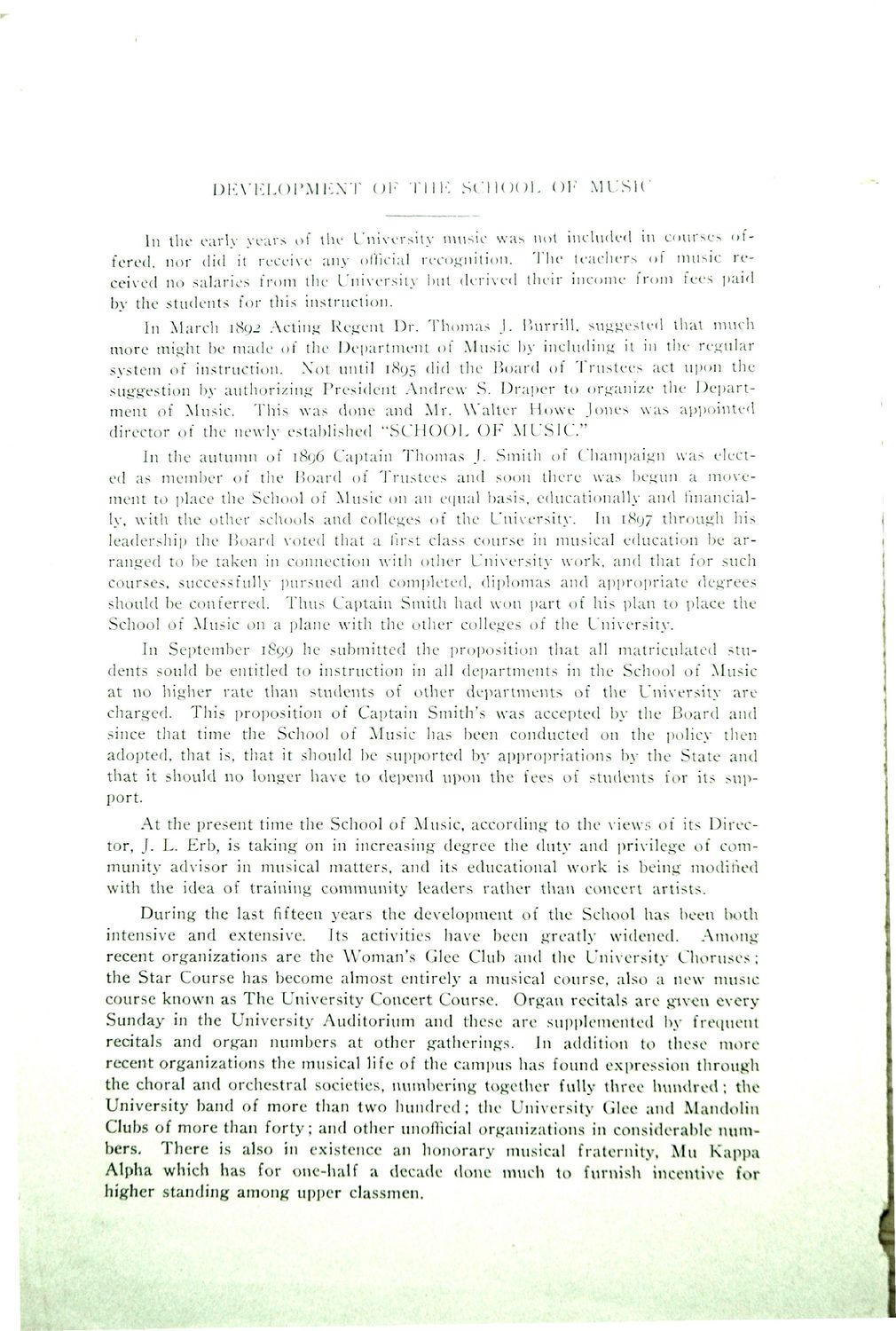| |
| |
Caption: Dedication - Smith Music Hall Cornerstone
This is a reduced-resolution page image for fast online browsing.

EXTRACTED TEXT FROM PAGE:
DEVELOPMENT O F T H E SCHOOL OF MUSIC In the early years of the University music was not included in courses offered, nor did it receive any official recognition. The teachers of music received no salaries from the University but derived their income from fees paid by the students for this instruction. In March 1892 Acting Regent Dr. Thomas J. Burrill, suggested that much more might be made of the Department of Music by including it in the regular system of instruction. Not until 1895 did the Board of Trustees act upon the suggestion by authorizing President Andrew S. Draper to organize the Department of Music. This was done and Mr. Walter Howe Jones was appointed director of the newly established "SCHOOL OF MUSIC." In the autumn of 1896 Captain Thomas J. Smith of Champaign was elected as member of the Board of Trustees and soon there was begun a movement to place the School of Music on an equal basis, educationally and financially, with the other schools and colleges of the University. In 1897 through his leadership the Board voted that a first class course in musical education be arranged to be taken in connection with other University work, and that for such courses, successfully pursued and completed, diplomas and appropriate degrees should be conferred. Thus Captain Smith had won part of his plan to place the School of Music on a plane with the other colleges of the University. In September 1899 he submitted the proposition that all matriculated students sould be entitled to instruction in all departments in the School of Music at no higher rate than students of other departments of the University are charged. This proposition of Captain Smith's was accepted by the Board and since that time the School of Music has been conducted on the policy then adopted, that is, that it should be supported by appropriations by the State and that it should no longer have to depend upon the fees of students for its support. At the present time the School of Music, according to the views of its Director, J. L. Erb, is taking on in increasing degree the duty and privilege of community advisor in musical matters, and its educational work is being modified with the idea of training community leaders rather than concert artists. During the last fifteen years the development of the School has been both intensive and extensive. Its activities have been greatly widened. Among recent organizations are the Woman's Glee Club and the University Choruses; the Star Course has become almost entirely a musical course, also a new music course known as The University Concert Course. Organ recitals are given every Sunday in the University Auditorium and these are supplemented by frequent recitals and organ numbers at other gatherings. In addition to these more recent organizations the musical life of the campus has found expression through the choral and orchestral societies, numbering together fully three hundred; the University band of more than two hundred; the University Glee and Mandolin Clubs of more than forty; and other unofficial organizations in considerable numbers. There is also in existence an honorary musical fraternity, Mu Kappa Alpha which has for one-half a decade done much to furnish incentive for higher standing among upper classmen.
| |